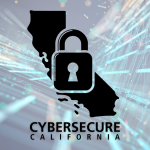As March draws to a close and we prepare for the upcoming month, it’s an excellent time to reflect on our daily habits and practices that contribute to cybersecurity. Just as personal hygiene practices are crucial for maintaining health, cybersecurity hygiene is vital for protecting our digital health and safety. Let’s delve into essential daily practices that can significantly enhance your and your organization’s digital security.
Understanding Cybersecurity Hygiene
Cybersecurity hygiene refers to routine practices and steps that users of digital technology take to maintain system health and improve online security. These practices help prevent common issues such as viruses, malware, data breaches, and other cyber threats.
Essential Daily Practices
Update Regularly
Software and Systems: Ensure all your software and operating systems are up-to-date with the latest security patches and updates.
Vigilance with Updates: Be vigilant about updating as soon as updates are available, as they often address critical security vulnerabilities.
Strong Passwords and Authentication
Robust Passwords: Use strong, unique passwords for all your accounts.
Password Managers: Consider using a password manager to keep track of your passwords securely.
Multi-Factor Authentication (MFA): Enable MFA wherever possible for an added layer of security.
Back Up Data
Regular Backups: Make regular backups of important data and ensure that these backups are secure and retrievable.
Test Your Backups: Periodically test your backups to ensure they work correctly in case they are needed.
Secure Connections
Use Secure Networks: Avoid using unsecured public Wi-Fi for any sensitive transactions. Use a VPN for better security when accessing public networks.
Secure Your Home Network: Ensure your home network is secure with strong passwords and updated hardware.
Phishing Awareness
Stay Informed: Be aware of the latest phishing scams and tactics used by cybercriminals.
Think Before Clicking: Be cautious about clicking on links or downloading attachments from unknown or unsolicited emails.
Limit Information Sharing
Personal Information: Be mindful of the personal information you share online, especially on social media.
Need-to-Know Basis: Only provide the necessary information when signing up for services or filling out forms online.
Regular Monitoring
Monitor Accounts: Keep an eye on your bank and other financial accounts for any unusual activity.
Credit Reports: Regularly check your credit reports for signs of identity theft or fraud.
Building a Culture of Cybersecurity
Incorporating these practices into your daily routine might seem daunting at first, but over time they will become second nature. Encourage a culture of cybersecurity within your organization by sharing tips, providing regular training, and fostering open communication about digital safety.
As we say goodbye to March and welcome the new month, let’s commit to maintaining and improving our cybersecurity hygiene. These daily practices are our first line of defense against the ever-evolving landscape of cyber threats. By committing to these habits, we can all contribute to a safer, more secure digital world.

